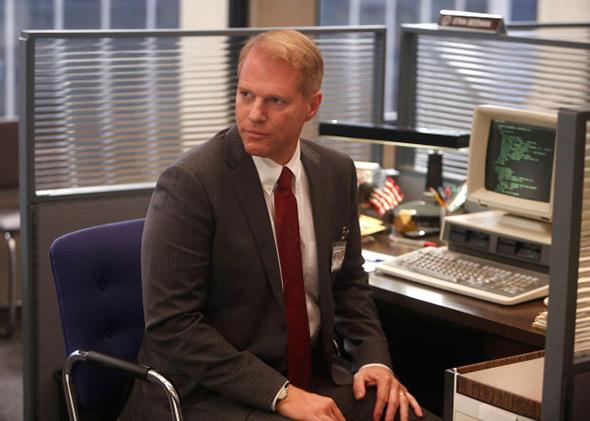This question originally appeared on Quora.
Disclosure: The Americans was created by Joe Weisberg, brother of The Slate Group’s editor in chief, Jacob Weisberg. In addition, this post contains spoilers.
Answer by Noah Emmerich, actor, FBI agent Stan Beeman on the FX series The Americans:
The biggest difference is obviously that in a film you know the entirety of the story before you begin. You have done your homework, and you know everything about this contained universe, and the work is done pretty much in advance.
In television, you have no idea where you are really going. No one does, including the writers. It’s an evolution and a much more improvisational, fluid challenge. It is impossible to prepare for the last act because it could be next month, or it could be in seven years, and who knows what could happen to your character in the interim. You get scripts that come down the pipe where you think you have a handle on the character, and then he does something like Stan murdering the soviet spy Vlad in The Americans. That really surprised me. It didn’t fit into my interpretation of the character and what his action would be. It’s a constant on-your-feet adjustment and also understanding the organic motivation of how the character could do something that you didn’t anticipate he would do. At first, I was anxious about that, almost resentful.
Also, things come along that change your character that you didn’t know about. Turns out Stan’s mother died when he was 8, and I didn’t know that even though I’ve been playing him the whole time. Maybe the audience can’t see, and maybe it doesn’t inform the performance, but you do create your architecture of self, which is important so that you feel like you are on solid ground as an actor within your character. Sometimes the ground changes without you expecting it, and the construct you built is actually wrong. It could be a domino effect of simple plot points that you didn’t anticipate. But then, I found it actually quite invigorating and exciting. I look forward to the surprises and the challenges. It’s more of a dialogue and conversation between the actor and the writer in television. The opportunity is there for the writer and your ideas to inform the character and the colors and the notes that you play. It’s an alive dynamic that is always evolving and growing.
The other big difference is time. On a TV show, if we get four takes, that’s a lot of takes. On a movie, if you take four takes, that was a fast scene. TV filming is more improvisational and more fluid, and once you get it and it’s usable on film, you move on. I talk about film and TV like oil paintings and charcoal sketches. You revisit the oil painting and work away on the same spot maybe for days until you get it right. On a sketch, as soon as you draw it, it’s done. There is something quite invigorating and exciting about the speed and the dynamism of TV pace.
Another area is the relationship of the audience, which is a totally different dynamic in film and TV. In film, the audience sees the work months to years after you have completed it. And it’s a fait accompli. It’s done. It’s no longer alive, and you have moved on from that work. With film, you get feedback, and you can listen to it or not, but it doesn’t inform the work at all. In television, you get feedback while you are still working, which was really the most startling thing for me the first season, because the show comes on air and people start talking about your character, and friends talk to you, and critics talk about you. I avoided reading anything that was written while I was in production because I didn’t want that to clog up my head, but you still can’t avoid getting some feedback.
Production to me has always felt like an incredibly private enterprise, even though it is obviously for public consumption down the road. Production itself feels very private, and that privacy is fundamentally important to me to feel free enough to play on the camera without thinking about how it will be received. In television, of course, you start to get this feedback, and you are going back to work, and people say, “I love the way Stan scratches his ear,” and you go, “I didn’t even know I was scratching my ear.” All of a sudden you are in your head, self-conscious to it and you think, “Oh, people like that. I should do that more.” It’s very hard to keep the voices out of your head. It feels like the audience is on the set, which is not the case in film. That’s definitely something I had to work on, and I successfully constructed a false isolation from the reception of the work.
More questions on Quora:
- Actors and Actresses: At what point did successful people in the entertainment industry realize that they made it?
- Influential People: Who are some of the most influential figures in the entertainment industry, and why?
- The Americans: What have been some of the most challenging moments for the cast and crew of The Americans?
